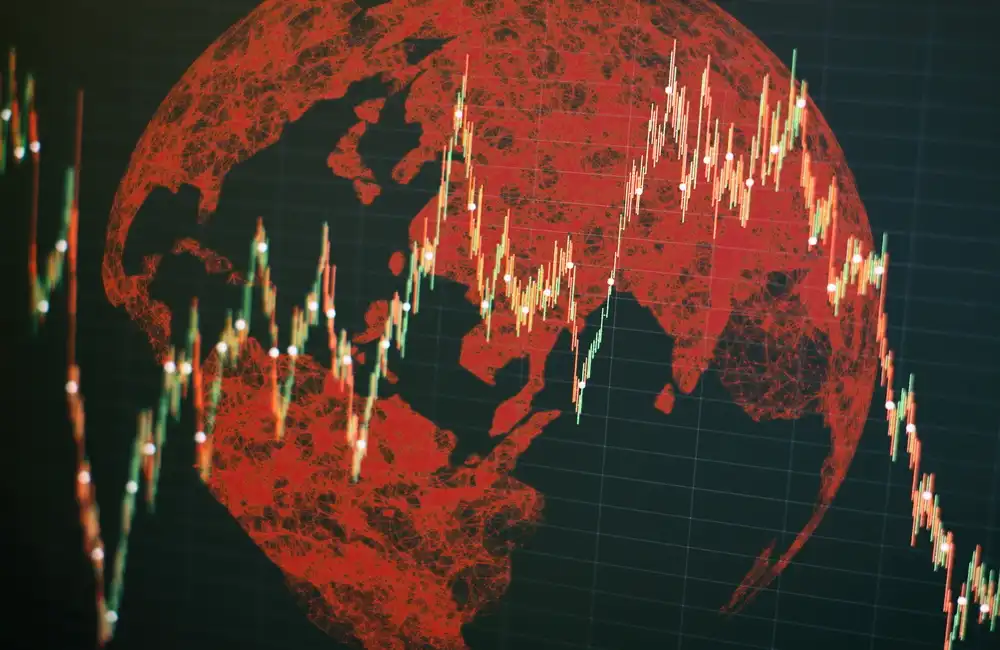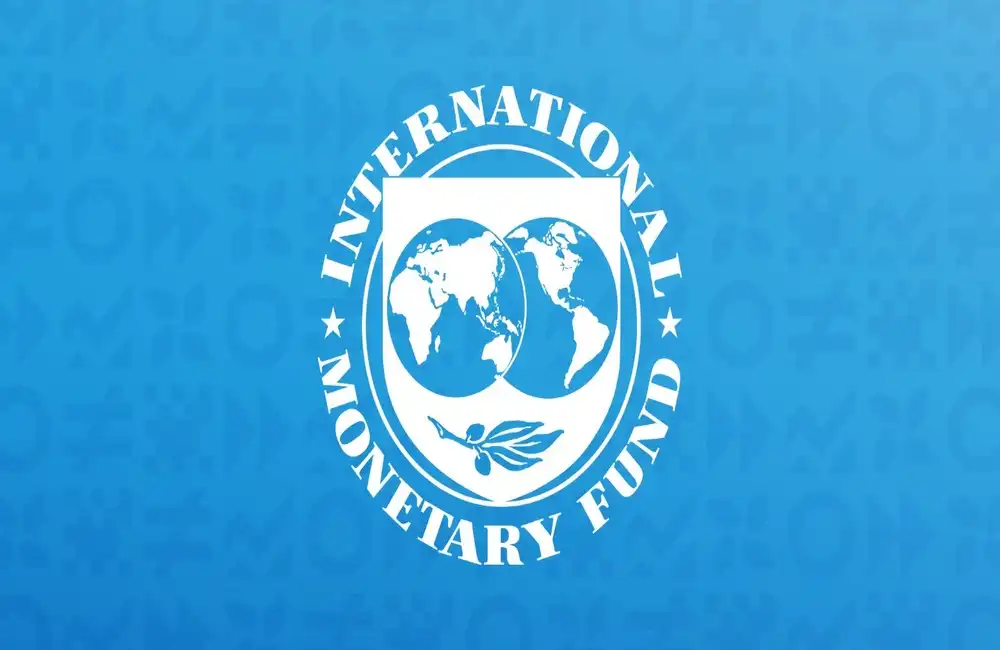The International Monetary Fund (IMF) has sounded an alert for UK investors regarding the potential for stock market disruptions because of intensifying trade tensions.
The IMF's Global Financial Stability Report identifies the negative impact that significant geopolitical events have on financial markets. Geopolitical tensions involving trade disputes and military conflicts pose serious destabilisation risks to both advanced and emerging markets.
The IMF research demonstrates that significant geopolitical disturbances result in a 1% monthly reduction in median global stock returns but emerging markets experience a more substantial decrease in returns of up to 2.5% monthly. The Russian invasion of Ukraine in 2022 stands out as a particularly devastating military conflict that decreased stock returns by an average of 5% per month.
The financial ecosystem reveals substantial vulnerability to outside political and economic disturbances according to these figures for investors. The warning is clear: Geopolitical events now have a greater impact on global markets than in any previous period.
Current Trade Tensions and Their Market Impact
Economic conflicts between major world powers like the United States, China, and the European Union have intensified trade frictions over recent years. Multiple nations have adopted protectionist stances while implementing new tariffs and retaliatory measures which together have produced unparalleled uncertainty about global trade policy.
The unclear status of trade agreements has pushed financial markets toward greater volatility as investors struggle to assess the associated risks. The IMF has disclosed its intentions to lower global growth projections due to continuing international challenges. The global economy has not yet entered recession territory but international trade and investment systems are experiencing clear stress.
These economic tensions create multiple effects throughout the UK economy. Due to its heavy dependence on trade and financial connections with both the EU and the United States British markets become highly vulnerable to changes in global trade patterns. These situations inevitably lead to heightened volatility which will affect individual investors as well as institutional portfolios.
Recommendations for Financial Institutions
The IMF has issued warnings about potential risks while simultaneously advising financial institutions on strengthening their resilience against these risks. Key recommendations include:
- Fortifying Capital and Liquidity Buffers: Institutions that increase their reserves achieve enhanced protection against market disturbances caused by trade disruptions or geopolitical conflicts.
- Implementing Stress Testing: Through continuous stress testing institutions can identify their weaknesses which allows them to deploy resources properly to lessen potential disruptions.
- Proactive Risk Management: Organisations need to establish proactive strategic plans which will help them prevent risks related to economic disturbances.
These protective measures are mostly for financial institutions but individual investors will gain insight from how banks and other financial entities strengthen their defenses. Greater market stability results from a stronger macroeconomic system.
Implications for UK Investors
UK investors find the IMF’s warnings to be both well-timed and pertinent. The combination of heightened market volatility and possible abrupt market downturns requires investors to maintain informed and cautious portfolio management strategies. Here’s how UK investors can adapt:
- Diversify Portfolios: Investors can limit their exposure to regional market disruptions by distributing their investments among various asset classes and different industries and regions.
- Monitor Geopolitical Developments: Awareness enables investors to make active strategy adjustments and sidesteps the dangerous reactive decisions that threaten their financial gains.
- Focus on Long-Term Goals: The markets have historically proven robust by bouncing back from major downturns over the long term.
- Consider Safer Assets: Stability can be created during volatile periods by placing some assets into low-risk investments like government bonds and defensive stocks.
- Leverage Expert Advice: Investors who collaborate with experienced financial advisors gain better understanding which leads to decisions that suit their unique financial objectives.
The Bigger Picture for Global Financial Stability
The IMF’s warnings act as an alarm to raise awareness and simultaneously provide actionable steps. UK investors are affected by global markets because economic events around the world influence their investment outcomes. The ability to prepare for future financial changes and adapt to new circumstances remains critical for navigating current unstable economic conditions.
The International Monetary Fund maintains a positive outlook on how resilient the global financial system will remain through future challenges. The risks from trade tensions and geopolitical instability can be effectively reduced through institutional preventive actions and well-informed investor decisions.
Final Thoughts: Staying Ahead Amid Market Uncertainty
The IMF warning about trade tensions in the stock market highlights the global economy’s weaknesses while urging stakeholders to enhance protective measures. The investment landscape in the UK presents challenges to investors but they can manage market volatility risks through portfolio diversification and informed long-term planning.
Investors need to maintain adaptability and financial stability to succeed amid geopolitical uncertainty. Remaining ahead of market trends enables investors to preserve current assets while positioning themselves to seize emerging opportunities within the ever-evolving economic environment.


















